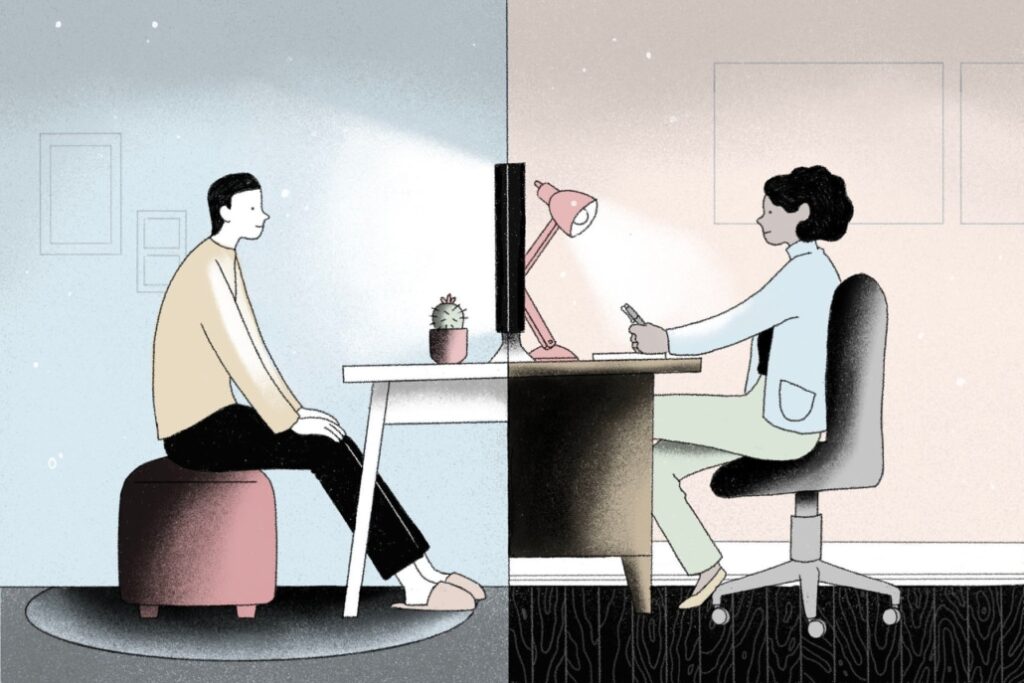Why Everyone Needs Therapy During A Pandemic
Or The mental health cost of a pandemic
I don’t need to tell any of you that living through a pandemic is hard mentally. Everyone could benefit from therapy during a pandemic. Stress, anxiety, depression, substance abuse, couples conflicts, parenting challenges are amplified by social isolation, financial losses, health concerns, and uncertainty. One of the many benefits of therapy is that therapists are trained to provide people with the tools they need to reach their goals and to feel better, or in this case, survive.
We go to graduate school and spend thousands of hours training to assess, diagnose, and treat all mental health conditions. Not only do we provide tools to our clients, but we also serve as thought partners, sounding boards, a safe place to vent, a shoulder to lean on, and an alternative viewpoint. We help people feel better in part by letting them know they are not alone and that we care about them and their well-being. In a world where everyone feels isolated, adrift, afraid, and uncertain, a therapist can be a life raft, and therapy can be what gets you through the storm.
Enough metaphors. The COVID-19 pandemic has not left anyone untouched psychologically. While governments focus on trying to regain economic stability and keeping the healthcare system afloat, no one is really tending to the biggest issue of all, our mental well-being. There is no vaccine for the short or long-term mental health effects of COVID, yet the effects are expected to last for years. Everyone can benefit from therapy in a pandemic.
Before the COVID-19 pandemic, nearly one in five U.S. adults (47 million) reported having a mental illness in the past year. Over 11 million Americans had a serious mental illness, which frequently resulted in functional impairments and limited life activities. A June 2020 survey from the Centers for Disease Control and Prevention found that 40.9% of respondents reported “at least one adverse mental or behavioral health condition,” including depression, anxiety, post-traumatic stress, and substance abuse, with rates that were 3 to 4 times the rates one year earlier.1 Remarkably, 10.7% of respondents reported seriously considering suicide in the last 30 days.1 Six months later, those numbers are significantly higher. Suicide, anxiety, depression, parenting challenges, substance abuse, and stress have skyrocketed and are at levels we have not encountered before as a society. Everyone can benefit from therapy during a pandemic and after.
Once this pandemic has ended, of central concern is the transformation of normal grief and distress into prolonged grief, major depressive disorders, and post-traumatic stress disorder symptoms. Returning to normal is not possible. Creating a new normal is the goal at hand and recovering from the pandemic mentally is most likely one of the greatest challenges many people will face, some unwittingly. Sadly, the second wave of emotional pain is imminent, attributable to the mental health consequences of COVID-19. Everyone can benefit from therapy after a pandemic too.
How do you know if the pandemic has affected you mentally? If you are breathing, it has. There is no way it could not have. As humans, we prefer structure, consistency, and predictability. We want our lives to make sense. We want to know what comes next and to feel as though we have some modicum of control over our choices and their outcomes. A pandemic strips us of all of those nouns about our daily lives. Instead, words like stress, anxiety, depression, arguing, anger, yelling, frustration, shutting down, numbing out and bewilderment define us. Everyone needs therapy during a pandemic.
New Year’s Eve 2020 was pretty typical. A million people gathered in Times Square to celebrate the year where “we would be able to see things clearly.” Three months later, American besieged by COVID-19. Now that New Year’s Eve 2021 has happened, we can actually see more clearly than ever the devastating mental health effects of COVID-19 on Americans, young and old. Millions are dead, unemployed, socially isolated, and struggling mentally. Do yourself and those you love a favor. Everyone needs therapy during and after a pandemic.
Mary White, MA, MA, LMFT
- Czeisler MÉ, Lane RI, Petrosky E, et al. Mental health, substance use, and suicidal ideation during the COVID-19 pandemic: United States, June 24-30, 2020. MMWR Morb Mortal Wkly Rep. 2020;69(32):1049-1057. doi:15585/mmwr.mm6932a1








